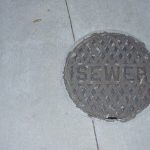Purchasing a new home is exciting and it’s easy to overlook details. Many new homeowners experience buyers remorse when they encounter bad plumbing issues after moving in. This could be a low water pressure problem that ruins their morning shower or something far more serious. Plumbing is a vital system in any home and we rely on it everyday. A casual inspection will not detect plumbing problems. In this article, we will provide three home inspection tips to avoid expensive plumbing repair bills.
1. Inspect the Sinks, Toilet and Faucets
These are three key parts of any well functioning home plumbing system and they can give you a good overview of the plumbing quality and water pressure. Turn each faucet and check for signs of discolored water, poor water pressure and water leaks. Look under each sink for leaks and pools of standing water which can indicate poor connections or failing pipes. Flush each toilet, check that the water drains away and look around the base for signs of leaks.
2. Check the Water Heater
We need hot water for many tasks in our homes and the water heater is a very hard working appliance. But, like any appliance it has a finite lifespan, and if the unit is 10 years old or older it’s not likely to work for much longer. A failing water heater may be unable to supply adequate volumes of hot water and there could be hidden damage. During the inspection process, get a local plumber to check the water heater and other plumbing systems to ensure that they are working efficiently.
3. A Sewage System Inspection
The main sewer line is prone to damage even though it’s located under the yard. There are a number of risks, including: tree root intrusions, degradation due to old age, shifting soil and more. Look for patches of virulent plant growth in the yard which may indicate a leak under that spot. You may notice a strong odor of sewage or sunken spots on the surface. But, the best way to get the sewer line inspected is to contact a professional plumber and ask them to inspect it for you. The plumber will have a sewer line camera that they can feed into the line to check the condition. This is important, fixing sewer line problems can be expensive and potential repairs should be factored into the negotiations.
What if the Purchased Has Completed?
If you have purchased a home with a few plumbing problems, it’s important to contact your local licensed and certified plumber. Ask them to inspect the home plumbing system and to diagnose the problems. If these are smaller issues and they are inexpensive to fix, it’s probably not worth involving the seller. But, if there are major problems, it’s time to figure out who is responsible to get it fixed. Your lawyer and real estate agent can offer advice and in many cases, the previous owner may be responsible.
Before you purchase your next home, contact your local professional plumber and ask for an inspection to give you extra peace of mind.





